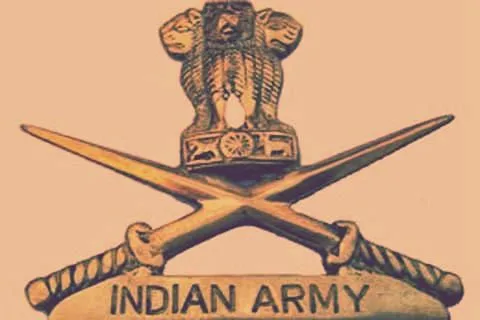New Delhi, Apr 5: The Army’s internal inquiries into the killing of three civilians, allegedly during interrogation by Army personnel following a terror attack in J&K’s Poonch in December 2023 that left four soldiers dead, have found serious lapses and operational gaps in the conduct of seven to eight personnel, including officers, at various levels, The Indian Express reported.
Sources have told The Indian Express that the findings of the inquiries indicate that the three civilians died of torture, allegedly during interrogation.
The terror attack took place on December 21 on the Mughal Road between Dehra Ki Gali and Bufliaz. The next morning, eight civilians were picked up from Topa Pir in Poonch district’s Bufliaz area, and five from Rajouri district’s Thanamandi area.
Of the eight taken away from Topa Pir, three died of injuries sustained during the alleged torture.
The inquiries are learnt to have found lapses in the overall conduct of the operation as well as the individual conduct of certain personnel.
Administrative and disciplinary action have been recommended against two officers and other ranks who were either directly or indirectly responsible for the interrogation.
The sources said that the initial findings have indicated administrative lapses and a lack of command and control on the part of the Brigade Commander of 13 Sector RR and the Commanding Officer (CO) of 48 Rashtriya Rifles (RR).
While the Brigade Commander was not physically present at the site, the CO was on leave – they have since been moved out. Although they were not directly involved in any misdemeanour, administrative action has been recommended against them. Not necessarily at the spot most times, they are responsible for ensuring the implementation of SoPs and other drills.
Suitable disciplinary action, sources said, has also been recommended against two officers, Junior Commissioned Officers (JCOs) and other ranks who were present during the interrogation of the civilians who had been rounded up. One of the officers was learnt to have been responsible for the CO’s role in his absence.
Sources said while the two officers may not have been directly involved in the physical torture which allegedly led to the deaths, they were responsible for ensuring that interrogation was done in line with rules. Hence, the recommendation for disciplinary action against them.
In the military, disciplinary action could mean a court martial. Punishment could include the death penalty, depending on the seriousness of the offence. Administrative action would mean departmental action minus a trial. Punishment could include loss of seniority, a fine, censure or even termination of service.
According to the sources, the inquiries have been finalised after being vetted for legal procedures and other details, including invoking Army Rule 180 wherein the accused gets the option to cross-question witnesses to clarify statements.
Based on the directions of the inquiry reports, the entire evidence is being collected in the form of a summary of evidence. Based on that, further action such as a General Court Martial would be ordered.
Meanwhile, 48 RR, the unit involved in the incident, has been made to regroup and retrain under a new Commanding Officer. It has been redeployed in another sector under the Nagrota-based XVI Corps.
The Indian Express reported that in response to their queries, the Army said that investigations into the incident are still in progress and it may be premature to arrive at outcomes at this stage.
“The Indian Army is committed to conducting a thorough and impartial inquiry to ascertain the facts surrounding this incident. All efforts are in place to ensure that the investigations are fair, comprehensive and conclusive. Further actions will be determined based on the outcome of the investigations,” it said.
The Army said it is committed to upholding the highest standards of discipline, conduct and ethics, by the law besides maintaining zero-tolerance towards any human rights violations.
“Our protocols and procedures are designed to ensure that all personnel adhere to these principles, even under the most challenging operational conditions,” it said.
Following the incident, Defence Minister Rajnath Singh along with Army Chief General Manoj Pande visited Rajouri and met the families of the three civilians who died. The families said Singh had assured them justice.







